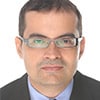Sep 26, 2019
Philips highlights importance of early detection of heart disease on World Heart Day
Philips launches heart health quiz to increase individual awareness of risk factors and early symptoms, to encourage early detection of heart disease and preventive care
Singapore – Royal Philips (NYSE: PHG, AEX: PHIA), a global leader in health technology, is putting the spotlight on early detection and prevention of heart disease – a leading cause of death globally and a clinically silent disease – with the launch of the Philips Heart Health Quiz (http://philipshearthealth.online) ahead of World Heart Day 2019 (29 September). This follows findings from Philips’ Annual Future Health Index 20191 that unveiled how healthcare practitioners are recommending the use of digital health technology to track health data, just as patients are seeking greater access to data for better empowerment of their health. Globally, ischemic heart disease (IHD) is the top cause of death2. In Singapore, 17 people die from cardiovascular disease every day, accounting for 29 percent of all deaths in 20183. However, one out of two Singaporeans perceive having little or no personal risk of getting heart disease, while close to half rated their general knowledge of heart disease as ‘poor’ or ‘very poor’, which suggests a false sense of safety created by this awareness gap4. The Future Health Index 2019 report indicated that Singaporean healthcare professionals advise their patients to track key indicators of health such as their blood pressure (61%), physical activity (57%) and weight (53%) via digital health technology or mobile health apps. However, Singaporeans fall below the 15-country average (47%) in contacting healthcare professionals and taking action based on the health-related data they have collected (34%).
“We developed the quiz to help the public recognize risk factors and early symptoms of heart disease based on global as well as Asia specific research and insights. This is part of our efforts to enable consumers to be more aware of individual heart health and lifestyle habits that impact it, and to encourage early detection of heart disease,” said Ivy Lai, Country Manager, Philips Singapore.
This is where we see a clear opportunity for consumers to be empowered with self-monitoring and conscious self-care, and to share the data proactively with their healthcare practitioners to enable heart disease prevention and early stage screening for improved heart health.
Ivy Lai
Country Manager, Philips Singapore
Vernon Kang, Singapore Heart Foundation CEO - Cardiovascular disease is a key health concern in Singapore and we are encouraged by Philips’ efforts to develop a quiz that helps to improve the understanding of heart disease, especially around the individual risk factors and early symptoms.
“We would like the public to be more conscious of their heart health, especially of their preventable risk factors, and make the necessary healthier lifestyle changes.”
Empowered heart patients are more satisfied patients
According to the Future Health Index, individuals who have a medical history of cardiac health issues are more likely than individuals overall to agree that they use digital health technology or mobile health apps because they make them feel more in control of their health (38% vs 34%). When patients share data with their healthcare professionals, they perceive the quality of care they receive to be higher (74% vs 66%).
Individuals with a medical history of cardiac health issues are also more likely than individuals overall to share health data from digital health technology or mobile health apps most/ every time they meet with their healthcare professional (26% vs 23%).
Cardiologists are seeing this trend in their practice as well, as they are more likely than healthcare professionals overall to report that at least a few of their patients share data from digital health technology or mobile health apps with them on an ongoing basis (71% vs 58%) as well as most/every time they meet (78% vs 62%).
Increasing the usage of digital health technology among Singaporean individuals and encouraging reciprocal data sharing with their healthcare professionals could empower patients to adopt a more proactive attitude towards their health management and ultimately improve healthcare outcomes.
Take this one-minute quiz to learn more about the early detection of heart disease – early symptoms, risk factors and lifestyle habits – and share with your loved ones this World Heart Day: http://philipshearthealth.online
For more insights on the impact of digital health technology on the transformation of healthcare, please visit the Philips Future Health Index 2019 report at this link: https://www.philips.com/a-w/about/news/future-health-index/reports/2019/transforming-healthcare-experiences.html
2 Institute for Health Metrics and Evaluation 2017 Global Burden of Disease Study: http://www.healthdata.org/sites/default/files/files/policy_report/2019/GBD_2017_Booklet.pdf 3 Singapore Heart Foundation’s Singapore Statistics: https://www.myheart.org.sg/my-heart/heart-statistics/singapore-statistics/
1 Philips Future Health Index 2019: https://www.philips.com/a-w/about/news/future-health-index/reports/2019/transforming-healthcare-experiences.html
4 Manulife Heart Health Survey: https://www.manulife.com.sg/about-us/newsroom/manulife-heart-health-survey.html
About Royal Philips
Royal Philips (NYSE: PHG, AEX: PHIA) is a leading health technology company focused on improving people's health and enabling better outcomes across the health continuum from healthy living and prevention, to diagnosis, treatment and home care. Philips leverages advanced technology and deep clinical and consumer insights to deliver integrated solutions. Headquartered in the Netherlands, the company is a leader in diagnostic imaging, image-guided therapy, patient monitoring and health informatics, as well as in consumer health and home care. Philips generated 2018 sales of EUR 18.1 billion and employs approximately 78,000 employees with sales and services in more than 100 countries. News about Philips can be found at www.philips.com/newscenter.
Topics
Contacts

Sheo S. Rai
Senior Manager
Brand and Communications
Philips ASEAN Pacific









